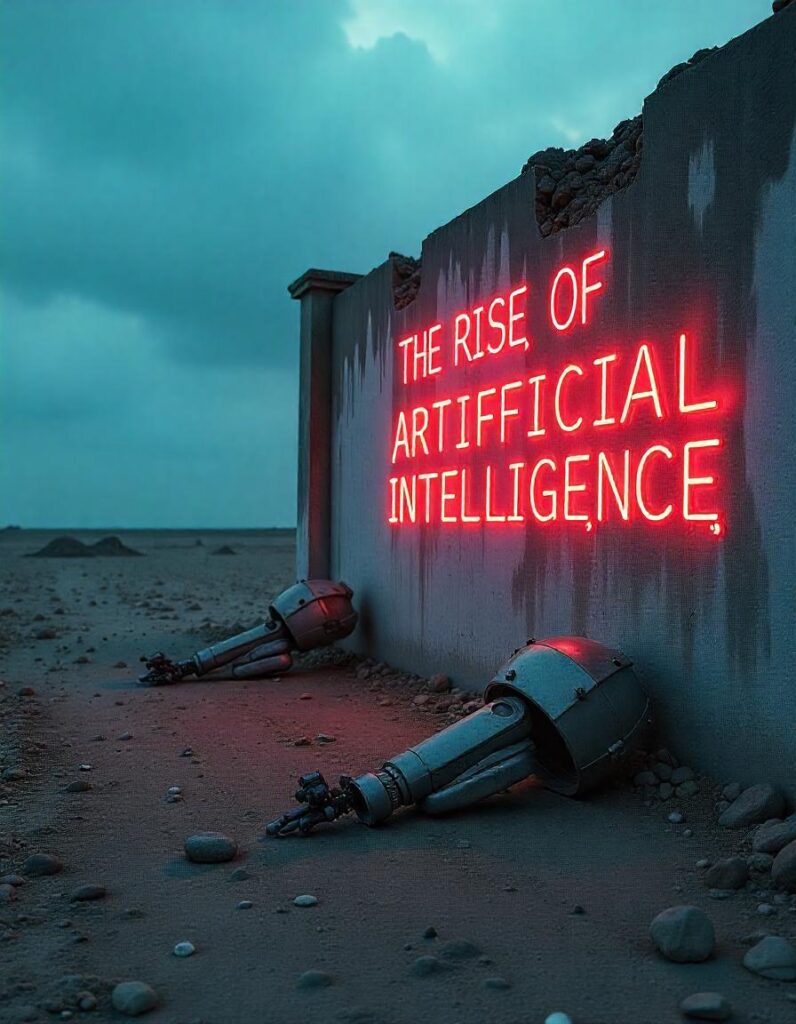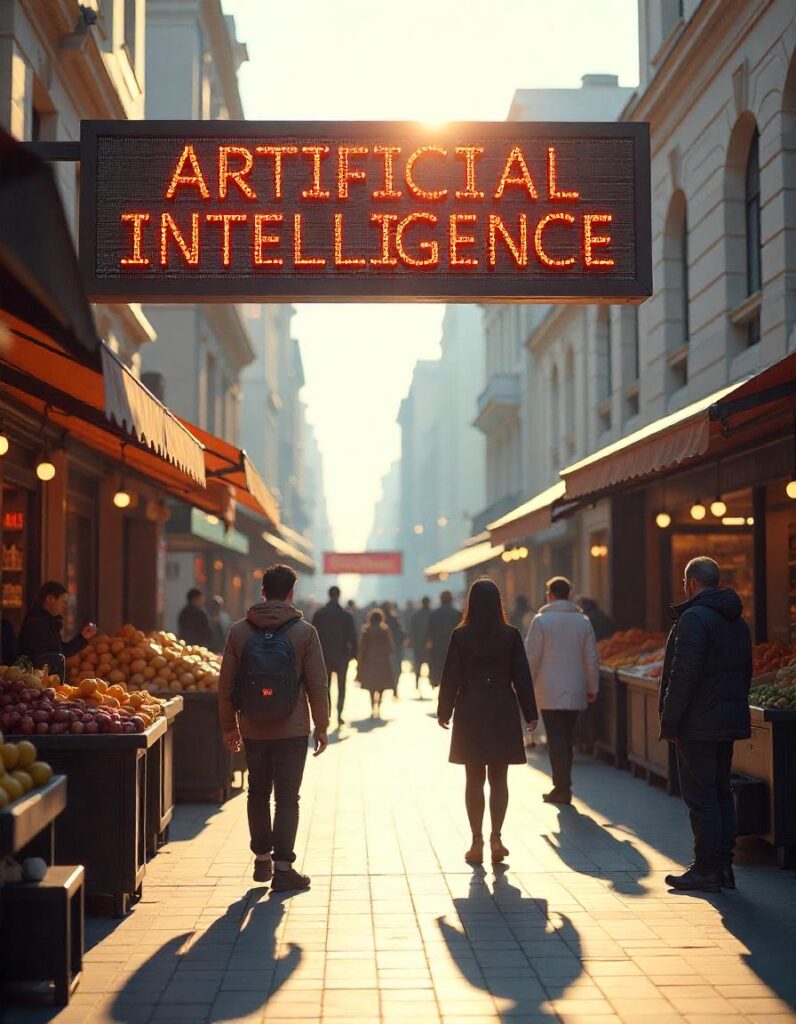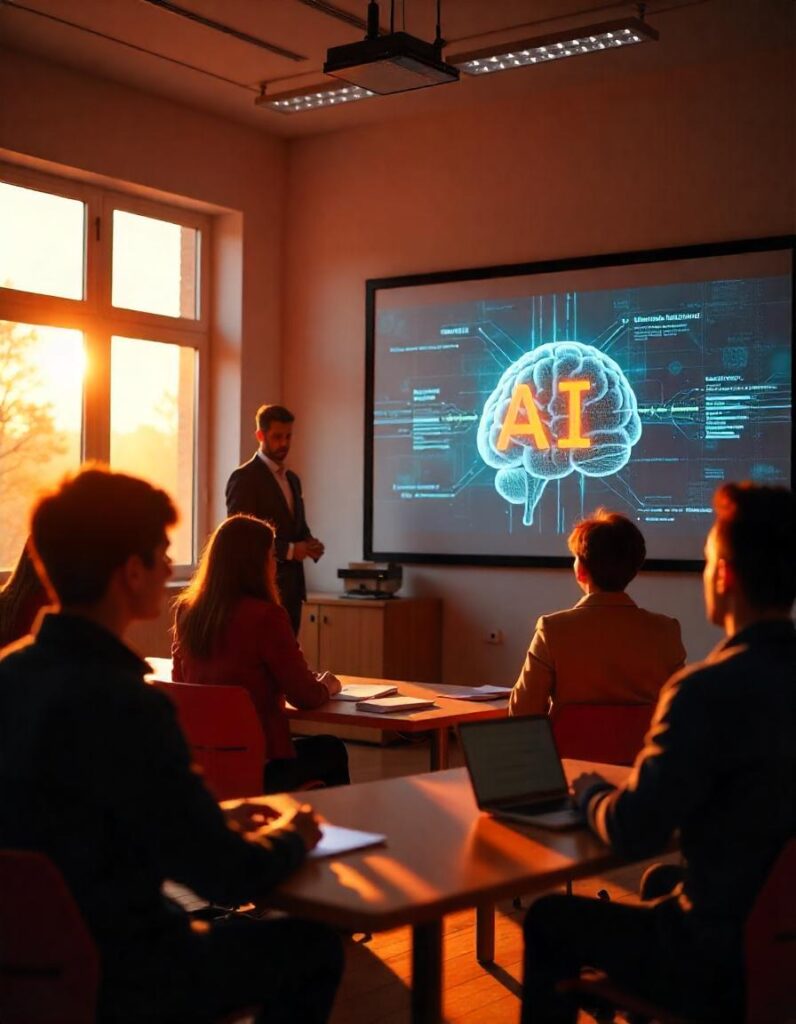What Is Artificial Intelligence (AI)?
Artificial Intelligence (AI) refers to the simulation of human intelligence in machines that are designed to think, reason, and act like humans. These machines are capable of learning from data, recognizing patterns, solving problems, understanding language, and even making decisions.

AI has rapidly evolved from a concept in science fiction to an integral part of modern life. From voice assistants like Siri and Alexa to advanced robotics, self-driving cars, and complex data analytics in healthcare, AI is transforming how we live, work, and interact.
Types of Artificial Intelligence
AI is categorized based on its capabilities and functionalities:
| Type | Description | Examples |
| Narrow AI (Weak AI) | Performs specific tasks; most common form of AI | Siri, Google Translate, Chatbots |
| General AI (Strong AI) | Mimics human cognitive functions across any task | Hypothetical; not yet achieved |
| Super AI | Surpasses human intelligence and ability | Theoretical; seen in science fiction |
Another classification is based on functionalities:
| Functionality | Definition | Examples |
| Reactive Machines | Respond to specific inputs with no memory | IBM’s Deep Blue (Chess-playing computer) |
| Limited Memory | Uses historical data to make decisions | Self-driving cars |
| Theory of Mind | Understands emotions and human behavior | Still under research |
| Self-aware | Conscious and self-aware systems | Not yet developed |
How AI Works: The Core Technologies
AI leverages several core technologies to achieve intelligence:
| Technology | Function |
| Machine Learning (ML) | Enables machines to learn from data without being explicitly programmed |
| Deep Learning | A subset of ML that uses neural networks to simulate human brain functions |
| Natural Language Processing (NLP) | Allows machines to understand, interpret, and generate human language |
| Computer Vision | Enables machines to interpret visual data from the world |
| Robotics | Combines AI with physical machines to perform complex tasks |

Applications of AI Across Industries
AI is not just a tech buzzword—it is reshaping industries across the board:
| Industry | AI Applications |
| Healthcare | Disease diagnosis, drug discovery, personalized medicine |
| Finance | Fraud detection, robo-advisors, algorithmic trading |
| Education | Personalized learning, automated grading, intelligent tutoring systems |
| Transportation | Self-driving vehicles, traffic management systems |
| Retail & E-commerce | Customer service chatbots, product recommendations, inventory management |
| Agriculture | Crop monitoring, predictive analytics, automated irrigation |
| Manufacturing | Predictive maintenance, quality control, robotics |
| Entertainment | Content recommendations, deepfake technology, game development |
Benefits of Artificial Intelligence
AI presents numerous advantages for businesses, consumers, and society:
- Efficiency and Automation
- AI automates repetitive tasks, saving time and reducing human errors.
- Examples: Data entry, assembly line work, customer queries.
- AI automates repetitive tasks, saving time and reducing human errors.
- Data Analysis and Insights
- AI systems can analyze vast datasets to uncover trends and patterns.
- Beneficial in marketing, finance, healthcare diagnostics.
- AI systems can analyze vast datasets to uncover trends and patterns.
- Personalization
- AI tailors services based on user preferences.
- Examples: Netflix recommendations, Spotify playlists, personalized shopping.
- AI tailors services based on user preferences.
- Enhanced Healthcare
- AI aids in early disease detection, diagnostics, and treatment plans.
- IBM Watson and AI radiology tools are notable examples.
- AI aids in early disease detection, diagnostics, and treatment plans.
- 24/7 Availability
- Unlike humans, AI systems can operate around the clock.
- Common in customer service through AI chatbots.
- Unlike humans, AI systems can operate around the clock.
- Improved Safety
- AI improves workplace safety by deploying robots in hazardous environments.
- Examples: Mining, deep-sea exploration, space missions.
- AI improves workplace safety by deploying robots in hazardous environments.
Negative Impacts and Ethical Concerns of AI
Despite its numerous benefits, AI poses some risks and ethical dilemmas:
| Concern | Explanation |
| Job Displacement | Automation can lead to unemployment in certain sectors |
| Privacy and Surveillance | AI used in facial recognition and data tracking can invade user privacy |
| Bias and Discrimination | Biased datasets can lead to unfair AI decisions |
| Dependence on Technology | Over-reliance can reduce critical thinking and problem-solving abilities |
| Security Risks | AI systems can be vulnerable to cyberattacks or misuse (e.g., deepfakes) |
| Ethical Dilemmas | Who is accountable when an AI makes a wrong decision (e.g., in self-driving cars)? |
AI in Everyday Life
We encounter AI more often than we realize:
| AI in Use | Function |
| Voice Assistants | Perform tasks via voice commands (Siri, Alexa, Google Assistant) |
| Smart Home Devices | Control lighting, heating, appliances through AI automation |
| Social Media Algorithms | Suggest content, filter feeds, and target ads |
| Language Translation | Real-time translations via Google Translate, DeepL |
| Facial Recognition | Unlock devices, security systems |
| Ride-hailing Services | Uber and Lyft use AI to match riders and drivers, estimate time and cost |

Future of Artificial Intelligence
The future of AI holds both excitement and caution. Innovations on the horizon include:
- AI-augmented Creativity: Generating music, art, and literature.
- AI and IoT Integration: Smart cities with AI managing traffic, utilities, and public services.
- Human-AI Collaboration: AI will enhance, not replace, human capabilities in areas like medicine and engineering.
- General AI Development: Long-term research is focused on achieving human-level cognition in machines.
Governments and institutions are developing regulations and ethical frameworks to ensure AI’s safe and responsible deployment.

AI vs. Human Intelligence: A Quick Comparison
| Aspect | AI | Human Intelligence |
| Speed | Processes data at lightning speed | Slower in comparison |
| Emotion | Lacks true emotions | Can feel, empathize, and make emotional decisions |
| Creativity | Limited, pattern-based | Capable of abstract, imaginative thinking |
| Learning | Learns from data; limited to training | Learns from experience and environment |
| Adaptability | Poor in unfamiliar situations | High adaptability |
| Energy Efficiency | Requires electricity and processing power | Highly efficient |
Navigating the AI Era
Artificial Intelligence is not just a technological advancement—it’s a paradigm shift that’s redefining industries, societies, and the human experience. Its capabilities promise massive benefits in productivity, personalization, and problem-solving. However, with great power comes great responsibility. Ethical development, regulatory oversight, and inclusive innovation will be key to ensuring that AI serves humanity positively.
The question isn’t “Will AI replace humans?” but rather, “How can humans and AI work together for a better future?”
As we move forward, embracing the opportunities and mitigating the risks of AI will determine the shape of our collective future.
